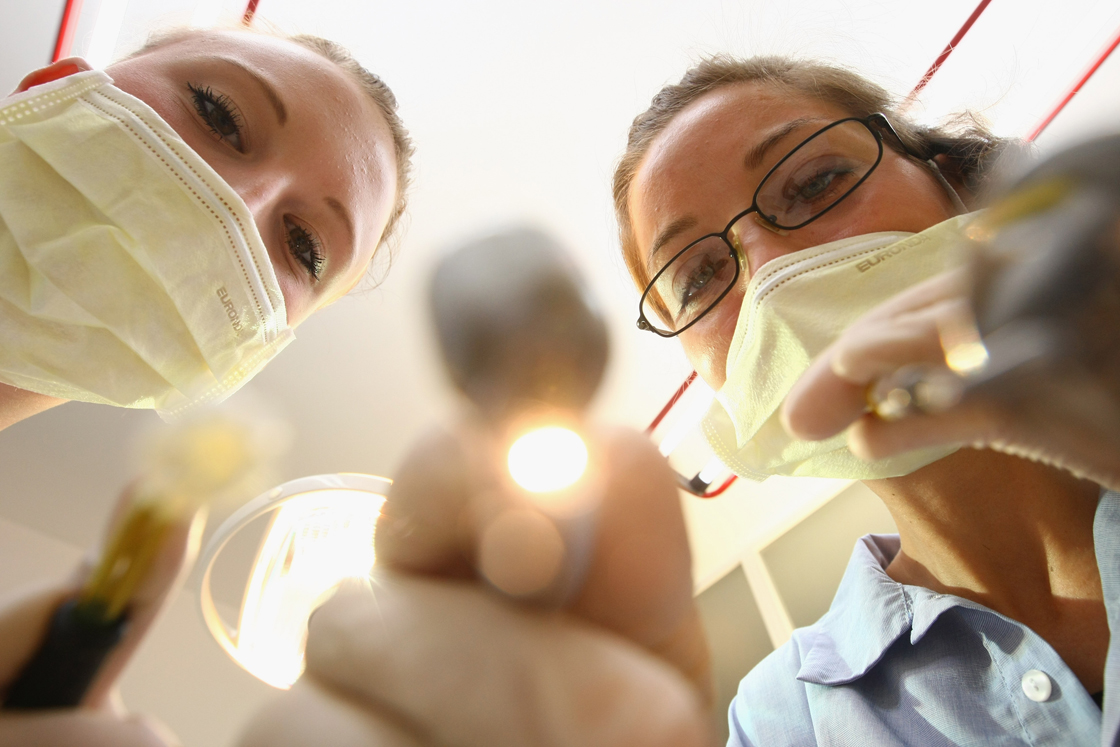It sounds like the plot of a Hollywood movie: a healthy 38-year-old man heads into his dentist’s office for a root canal, but comes out with such severe memory loss, he wakes up every morning thinking it’s the same day of his appointment.

In a bizarre case study, British researchers say the man’s symptoms are akin to what’s been depicted in movies like Groundhog Day and Memento. For the past decade, he can only remember for up to 90 minutes at a time.
“One of our reasons for writing up this individual’s case was that we had never seen anything like this before in our assessment clinics, and we do not know what to make of it. We had never seen anything like it before,” Dr. Gerald Burgess, a University of Leicester professor in clinical psychology, said in a statement.
Burgess and his team are now appealing to the public and others in the medical community to see if anyone else has ever dealt with such an anomaly. He met his patient about a decade ago through a referral.
READ MORE: Remember where you were on 9/11? Study suggests memories may be distorted
“Our experience was that none of our colleagues in neurology, psychiatry and clinical neuropsychology could explain this case, or had seen anything like it themselves before,” Burgess conceded.
- Landmark smoking ban that would phase out sales passes U.K. parliament
- Budget 2024: Liberals look to offset drug plan cost with higher smoking, vaping taxes
- ‘Bacterial vampirism’: Deadly pathogens attracted to human blood, study finds
- Health task force blasted over ‘dangerous guidance’ for cancer screenings
The man at the centre of the controversy went for a routine dentist appointment. The dentist doled out a local anesthetic for the procedure. After that, he lost the ability to create new memories. So far, he’s only been able to remember in 90-minute bursts.
This form of memory loss – called anteriograde amnesia – differs from the conventional amnesia most of us are familiar with. It’s called retrograde amnesia and we see it in the movies and on TV shows: a woman ends up in a car crash and wakes up in a hospital bed surrounded by strangers. You can’t remember the past, but as you go about your day-to-day life, familiar faces and places will trigger your brain and act as a prompt to pull back your memories. It’s common with concussions, for example.
READ MORE: PTSD and memory – Canadian docs study survivors on plane near-disaster
This “soap opera amnesia” – as University of Toronto psychology professor Dr. Steve Joordens describes it – isn’t the same as anteriograde amnesia.
Three things need to happen when you remember, Joordens said: first you have to live a memory and encode it, transitioning the experience from the outer world into your brain. Next, you have to store the memory and make sure it’s a strong enough recollection to keep a trace of it in your brain. Finally, you have to be able to retrieve the memory at a later date.
With retrograde amnesia, you can’t retrieve memories from before your condition set in, but with anteriograde amnesia, you’re unable to create new memories due to your brain damage.
READ MORE: No one’s ‘immune’ to memory distortion, even those with superior memory
“This patient, maybe, he could tell you about his vacation two years ago perfectly fine. His memories are there right up to the surgery, but something happened that made his hippocampus – what stores the memories – no longer function properly. It’s like his memory bank stopped,” Joordens told Global News.
“The condition isn’t odd. It exists but it’s the cause that is a rarity,” he said.
The hippocampus is a two-centre C-shaped section in the centre of your brain. It’s responsible for storing memories, encoding them and then consolidating them so they’re organized in the brain, Joordens said.
The patient in the study knows who he is and has kept his personality while his memories prior to the root canal are all intact. The researchers say he now relies on his wife and an electronic diary to manage his life.
READ MORE: As dementia sets in, artists still recall drawing from memory
“Each morning he is surprised to wake up in his mother’s house. He wakes up believing that he should still be in the military, stationed abroad,” the study reads.
“Every day, he thinks it is the day of the dentist appointment,” it said.
The researchers aren’t pointing fingers at the dentist. They say the anesthetic and root canal can’t be blamed because it’d be “unethical and perhaps baseless scaremongering” to do so without adequate evidence. For now, any explanation could be plausible, they say.
Following his root canal, the man was “pale and faint.” He even had slow speech, but CT and MRI scans testing for brain damage came back empty-handed.
READ MORE: Does shift work hurt your brain? Memory, processing affected, study warns
“There is nothing more than that to go on now. Since publishing the article, web-based stories that have appeared have attracted a few people to write to me with theories or stories around anesthesia and/or tooth extractions and subsequent memory difficulties,” Burgess said.
“I would be most grateful if others have stories or theories of this or some kind to come forward,” he said.
Burgess’ full findings were published this week. Read the case study here.
carmen.chai@globalnews.ca
Follow @Carmen_Chai




Comments